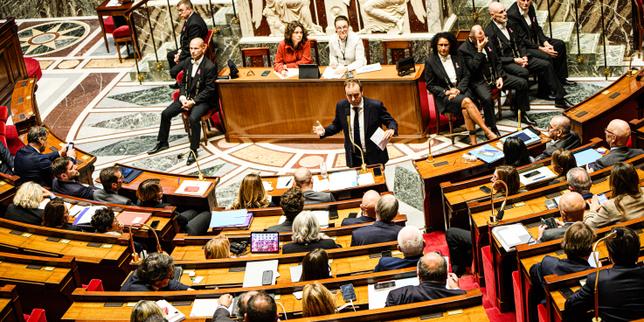French Government Suspends Pension Reform via Amendment Amidst Political Debate
France suspends its pension reform through a strategic amendment in the Social Security finance bill, igniting political debates and proposing a shift toward social partner-managed pensions.
- • Pension reform suspension announced via amendment to the Social Security finance bill to expedite legislative process.
- • Suspension maintains retirement age at 62 years and 9 months for those born in 1964, delaying increases until 2028.
- • Socialists requested the form of suspension through government amendment, securing their legislative involvement.
- • Opposition parties criticize the government's tactic as a political trap; government insists on Prime Minister's commitment.
- • Lecornu proposes transferring pension management to social partners inspired by European joint-management models.
Key details
On October 14, 2025, French Prime Minister Sébastien Lecornu announced the suspension of the controversial pension reform, which would have raised the retirement age to 64, by means of an amendment to the Social Security finance bill scheduled for November. This legislative choice, aiming to streamline the process, avoids the complexity of passing a new law and allows a quicker procedure within the existing Social Security framework, as explained by legal expert Anne-Charlène Bezzina. The Socialist Party played a pivotal role by requesting the suspension through a government amendment, solidifying their participation in the legislative process and thus, refraining from voting against the government’s censure, according to constitutional expert Samy Benzina.
The suspension effectively maintains the legal retirement age at 62 years and 9 months for those born in 1964 and postpones the increased retirement age for subsequent generations until 2028. This affects approximately 3.5 million people across five generations. The Socialist Party specifically demanded halting the increase in retirement age and the acceleration of the required contribution duration from 42 years and 6 months up to 43 years for full benefits. This pause has been met with mixed reactions: the CFDT union viewed it as a significant setback to the reform, while CGT saw it more as a delay.
However, political tensions persist as opposition parties like La France Insoumise and the National Rally interpret the government's approach as a political ploy to corner the Socialists into supporting or rejecting the entire Social Security financing bill. Maud Bregeon, government spokesperson, defended the government's integrity and emphasized Prime Minister Lecornu's commitment to the suspension despite the challenging parliamentary budget discussions ahead.
In addition to suspension discussions, Lecornu proposed a broader reform of pension management, advocating for it to be handled by social partners, inspired by the joint-management model of the Agirc-Arrco complementary pension system prevalent in Europe. This reflects an ambition to introduce a spirit of "social democracy" to pension governance, moving away from France's traditionally state-driven, solidarity-oriented system as described by economist Jacques Pelletan.
The government’s strategy of integrating suspension within the Social Security bill and fostering collaborative pension management aims to balance political compromise with necessary reform, yet uncertainties remain regarding the pension system's direction post-2028 and the ongoing parliamentary negotiations.
This article was translated and synthesized from French sources, providing English-speaking readers with local perspectives.
Source articles (4)
Source comparison
Timeline of the announcement
Sources disagree on the date of the pension reform suspension announcement.
lemonde.fr
"On October 14, 2025, French Prime Minister Sébastien Lecornu addressed the National Assembly, announcing that the suspension of the pension reform would occur through an amendment."
liberation.fr
"On October 14, the French Prime Minister announced the suspension of the controversial retirement reform until 2028."
lefigaro.fr
"Sébastien Lecornu, in his general policy statement on October 15, proposed a significant shift in the management of the French pension system."
Why this matters: Source 1 and Source 3 state that the announcement was made on October 14, 2025, while Source 4 claims it was made on October 15, 2025. This discrepancy is significant as it affects the understanding of when the government communicated this important policy change.
Latest news
Katy Spicher Sues French State for Denial of Justice Over Unsolved 1983 Murder of Her Mother
French Public Sees Rise in Political Violence Amid Pre-Municipal Election Tensions
Businesses Drive French Economy Amid Rising Financial Challenges for Youth
France Climbs to 4th Place in 2026 Winter Olympics Medal Table After Biathlon Relay Gold
XV de France to Field Largely Unchanged Lineup Against Italy in Six Nations
France and India Deepen Strategic Partnership with Focus on AI Regulation and Defense Cooperation
The top news stories in France
Delivered straight to your inbox each morning.



